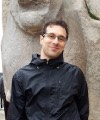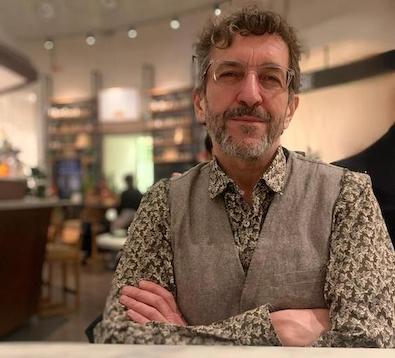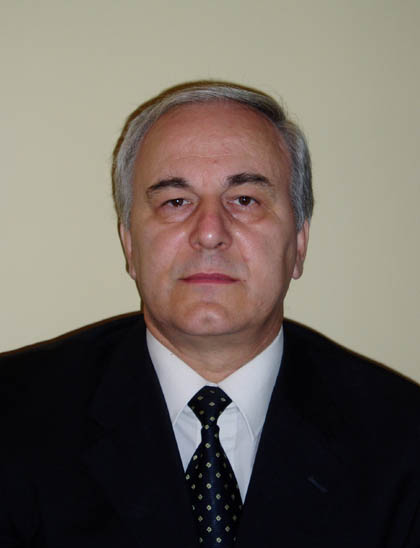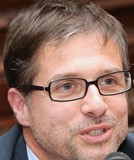Studying at the University of Verona
Here you can find information on the organisational aspects of the Programme, lecture timetables, learning activities and useful contact details for your time at the University, from enrolment to graduation.
Academic calendar
The academic calendar shows the deadlines and scheduled events that are relevant to students, teaching and technical-administrative staff of the University. Public holidays and University closures are also indicated. The academic year normally begins on 1 October each year and ends on 30 September of the following year.
Course calendar
The Academic Calendar sets out the degree programme lecture and exam timetables, as well as the relevant university closure dates..
| Period | From | To |
|---|---|---|
| I semestre - sede TN | Sep 16, 2019 | Dec 20, 2019 |
| Sem 1A | Sep 23, 2019 | Oct 31, 2019 |
| Sem 1B | Nov 11, 2019 | Jan 11, 2020 |
| Sem 2A | Feb 17, 2020 | Mar 28, 2020 |
| II semestre - sede TN | Feb 17, 2020 | May 29, 2020 |
| Sem 2B | Apr 6, 2020 | May 30, 2020 |
| Session | From | To |
|---|---|---|
| Sessione d'esame invernale | Jan 13, 2020 | Feb 15, 2020 |
| Sessione d'esame estiva (gli esami sono sospesi durante la sessione di laurea) | Jun 3, 2020 | Jul 25, 2020 |
| Sessione d'esame autunnale | Aug 24, 2020 | Sep 19, 2020 |
| Session | From | To |
|---|---|---|
| Sessione di laurea estiva | Jul 6, 2020 | Jul 11, 2020 |
| Sessione di laurea autunnale 19-20 | Nov 2, 2020 | Nov 7, 2020 |
| Period | From | To |
|---|---|---|
| Festa di Ognissanti | Nov 1, 2019 | Nov 1, 2019 |
| Sospensione delle lezioni | Nov 2, 2019 | Nov 2, 2019 |
| Festa dell'Immacolata | Dec 8, 2019 | Dec 8, 2019 |
| Vacanze di Natale | Dec 23, 2019 | Jan 6, 2020 |
| Vacanze di Pasqua | Apr 10, 2020 | Apr 14, 2020 |
| Festa della Liberazione | Apr 25, 2020 | Apr 25, 2020 |
| Festa del Lavoro | May 1, 2020 | May 1, 2020 |
| Sospensione delle lezioni | May 2, 2020 | May 2, 2020 |
| Festa del Santo Patrono | May 21, 2020 | May 21, 2020 |
| Sospensione delle lezioni | May 22, 2020 | May 23, 2020 |
| Festa della Repubblica | Jun 2, 2020 | Jun 2, 2020 |
| Vacanze estive | Aug 10, 2020 | Aug 15, 2020 |
Exam calendar
Exam dates and rounds are managed by the relevant Culture and Civilisation Teaching and Student Services Unit.
To view all the exam sessions available, please use the Exam dashboard on ESSE3.
If you forgot your login details or have problems logging in, please contact the relevant IT HelpDesk, or check the login details recovery web page.
Should you have any doubts or questions, please check the Enrollment FAQs
Academic staff

Bassetti Massimiliano
 massimiliano.bassetti@univr.it
massimiliano.bassetti@univr.it
 045802 8376
045802 8376
 giovanni.ciappelli@univr.it
giovanni.ciappelli@univr.it
 gianmaria.varanini@univr.it
gianmaria.varanini@univr.it
Study Plan
The Study Plan includes all modules, teaching and learning activities that each student will need to undertake during their time at the University.
Please select your Study Plan based on your enrollment year.
1° Year
| Modules | Credits | TAF | SSD |
|---|
Medieval History, History of Christianity and Churches
Early Modern History I - LM (Historical Anthropology)
Contemporary History I - LM
1 module to be chosen among the following1 module to be chosen between the followingHistory of Political Institutions II
History of Political Thought
1 module to be chosen between the followingHistory of Science and Technology - LM
1 module to be chosen among the followingHistory of Medieval Art I
Medieval Latin Literature II
Digital tools for historical research
2° Year activated in the A.Y. 2020/2021
| Modules | Credits | TAF | SSD |
|---|
| Modules | Credits | TAF | SSD |
|---|
Medieval History, History of Christianity and Churches
Early Modern History I - LM (Historical Anthropology)
Contemporary History I - LM
1 module to be chosen among the following1 module to be chosen between the followingHistory of Political Institutions II
History of Political Thought
1 module to be chosen between the followingHistory of Science and Technology - LM
1 module to be chosen among the followingHistory of Medieval Art I
Medieval Latin Literature II
Digital tools for historical research
| Modules | Credits | TAF | SSD |
|---|
Legend | Type of training activity (TTA)
TAF (Type of Educational Activity) All courses and activities are classified into different types of educational activities, indicated by a letter.
Medieval History, History of Christianity and Churches [Sede VR] - STORIA MEDIEVALE (2019/2020)
Teaching code
4S001216
Teacher
Credits
6
Also offered in courses:
- Medieval History (m) of the course Master’s degree in Tradition and Interpretation of Literary Texts
- Medieval History I - LM [Sede VR] of the course Master's degree in Arts (interuniversity)
Language
Italian
Scientific Disciplinary Sector (SSD)
M-STO/01 - MEDIEVAL HISTORY
Period
Sem 2A dal Feb 17, 2020 al Mar 28, 2020.
To show the organization of the course that includes this module, follow this link: Course organization
Learning outcomes
To deepen one or more aspects or specific subjects related to the medieval society through readings and comments, oral or written, of sources of different kind and through the reading and discussing of important historiographical texts. Give students methodological and critical tools in order to enable them to conduct autonomous researches.
Aims of the course and expected results
The final aim of this course, which is a part of the integrated course in Storia medievale, del Cristianesimo e delle chiese, is to make student comprehend the complexity of researching in history. This will allow students to acquire part of the useful tools, which will permit them to individually lead their own researches and/or autonomous investigations.
Moreover, the aim of this course is also to give students the following knowledge:
- general knowledge of the political and social organization in Europe between 5th and 15th century
- knowledge of the current historical debate on “Urban and rural communities in Italy under the Lombards and the Carolingians”
Through this course students should acquire the following abilities:
- capability of distinguish the different kind of medieval sources
- capability of autonomously analysing sources referred to the subject of this course
- capability of autonomously analysing essays in medieval history written in the mayor modern languages
- capability of autonomously writing papers on topics discussed in class or on topics next to the one discussed during the lectures.
Prerequisites
- In order to follow the topics of this course a basic knowledge of the social and political history of the Middle Ages is asked. Even if it not strictly necessary, a basic knowledge of Latin is welcomed: this will allow the reading and comprehending of the sources presented and discussed during lectures. Latin sources will be translated and discussed by the lecturer.
Program
URBAN AND RURAL COMMUNITIES IN ITALY UNDER THE LOMBARDS AND THE CAROLINGIANS
The introductory lectures will focus on the historiographical debate on this topic, looking at the entire medieval period. In one fo these general lectures Prof. Wendy Davies, emerita of UCL and Oxford University, visiting professor at the Department Culture e Civiltà, will offer students an overview of her research topics. After this first stage, in the following lectures the role of rural and urban communities in Lombard and Carolingian Italy will be analysed. A special attention will be devoted to central-northern Italy, thanks to dossiers of sources that will be analysed and discussed during lectures and that will be also available in PDF format. The third part of the course will be devoted to the cultural aspects and to the role played by some communities in this respect. Students will be asked to study and analyse original documents and further information will be given them in order to better understand their importance and their meaning. During the last teaching week there will be three excursions; part of them will be held in English together with Master Students in Medieval History from the Freie Universität, Berlin, and with Prof. Dr. Stefan Esders. One trip will take place in Verona, where some monuments and the Capitular Library will be visited. A second trip will be devoted to Brescia and some of its monuments. The third trip will be at Lucca, where monuments and the Archbishopric’s Archive will be visited. The practical aspects regarding the excursions will be discussed with students attending the first lecture: interested students are kindly asked to write an e-mail to the lecture before the 25th of August in order to let him find a co-financing for the trips and cheap prices.
Didactical methods and learning activities asked to students:
The course will be organized as a seminar and will be based on the frontal lecture, class comments, laboratories and on the interpretation of recent historiographical works and of edited sources. After having acquired the historical and historiographical framework, during the second part of the course students will be asked to work autonomously on some sources or will be divided into small groups. Once learned how to use the edited sources, student will have again the opportunity to work on some of the sources that will be seen as originals during the didactical excursions. Students could write short papers autonomously or in small groups on topics related to the excursions; the results can be presented during the different trips, according to the subject.
MANDATORY READINGS FOR ALL STUDENTS:
The general knowledge of Medieval History is absolutely necessary; it can be achieved through manuals or introductions to the study of Medieval History. To those who have a poor knowledge of the Middle Ages I suggest G. VITOLO, Medioevo. I caratteri originali di un’età di transizione, Milan, Sansoni, 2000; alternatively students can choose between the two more recent books of T. LAZZARI, G. ALBERTONI, Introduzione alla storia medievale, Bologna, il Mulino, 2015; A. ZORZI, Manuale di storia medievale, Novara, Utet, 2016. For those who already have a good knowledge I recommend R. BORDONE, G. SERGI, Dieci secoli di medioevo, Turin, Einaudi, 2009. Students will also be asked to individually choose 7 chapters of the volume Storia Medievale, Rome, Donzelli, 1998.
READINGS FOR STUDENTS ATTENDING REGULARLY LECTURES
Students are asked to choose two books among the following titles:
P. BROWN, Il riscatto dell’anima. Aldilà e ricchezza nel primo cristianesimo occidentale, Turin, Einaudi, 2016; S. GASPARRI, C. LA ROCCA, Tempi barbarici. L’Europa occidentale tra antichità e medioevo (300-900), Rome, Carocci, 2012; G. HALSALL, Barbarian Migrations and the Roman West (376-568), Cambridge, Cambridge University Press, 2007; P.J. GEARY, Il mito delle nazioni. Le origini medievali dell’Europa, Rome, Carocci, 2009; C. WICKHAM, L’eredità di Roma. Storia d’Europa dal 400 al 1000 d.C., Rome-Bari, Laterza, 2014; J.M.H. Smith, L’Europa dopo Roma, Una nuova storia culturale 500-1000, Bologna, il Mulino, 2008; M. MEIER, Giustiniano, Bologna, il Mulino, 2007; S. GASPARRI, Italia longobarda. Il regno, i Franchi, il papato, Rome-Bari, Laterza, 2012; S. COSENTINO, Storia dell’Italia bizantina (VI-XI secolo). Da Giustiniano ai Normanni, Bologna, Bononia University Press, 2008; P. CAMMAROSANO, Storia dell’Italia medievale. Dal VI all’XI secolo, Rome-Bari, Laterza, 2001; P. CAMMAROSANO, Nobili e re. L’Italia politica dell’alto medioevo, Bari, Laterza, 1999; R. MCKITTERICK, History and Memory in the Carolingian World, Cambridge, Cambridge University Press, 2004; R. MCKITTERICK, Charlemagne. The formation of a European Identity, Cambridge, Cambridge University Press, 2008; A. BARBERO, Carlo Magno Un padre dell’Europa, Rome-Bari, Laterza, 2000; T. LAZZARI, Le donne nell’alto Medioevo, Milan-Turin, Bruno Mondadori, 2010; M. COSTAMBEYS, M. INNES, S. MACLEAN, The Carolingian World, Cambridge, Cambridge University Press, 2011; S. PATZOLD, C. van RHIJN (eds.), Men in the Middle. Local Priests in early Medieval Europe, Berlin, De Gruyter, 2016; S. GASPARRI, Voci dai secoli oscuri. Un percorso nelle fonti dell’alto medioevo, Rome, Carocci, 2017; S. GASPARRI, Desiderio, Roma, Salerno, 2019; H. KELLER, Gli Ottoni. Una dinastia imperiale fra Europa e Italia (secc. X e XI), Rome, Carocci, 2012; A.A. SETTIA, Castelli medievali, Bologna, il Mulino, 2017; L. PROVERO, L’Italia dei poteri locali. Secoli X-XII, Roma, Carocci, 1998; G. ALBERTONI, L. PROVERO, Il feudalesimo in Italia, Rome, Carocci, 2003; N. D’ACUNTO, L'età dell'obbedienza: papato, impero e poteri locali nel secolo XI, Naples, Liguori, 2007; G. ALBERTONI, Vassalli, feudi, feudalesimo, Rome, Carocci, 2015; C. WICKHAM, Sonnambuli verso un nuovo mondo. L’affermazione dei comuni italiani nel XII secolo, Rome, Viella, 2017; A. AUGENTI, Archeologia dell’Italia medievale, Rome-Bari, Laterza, 2016; Giuseppe Sergi, Antidoti all’abuso della storia. Medioevo, medievisti, smentite, Naples, Liguori, 2010.
READINGS FOR STUDENTS NOT ATTENDING LECTURES:
Students are asked to choose THREE books among the list.
DOSSIER OF SOURCES: only for students attending lectures. They will distributed by the lecturer as copies or per e-mail.
READING OF ESSAIS OR ANALYSIS OF A CORPUS OF SOURCE FOR THE WRITING OF A PAPER: students are encouraged writing an essay individually or in small groups in order to further deepen topics discussed during lectures. The writing of an assay substitutes one of the mandatory readings of essays. Further bibliographical information will be given during the first lectures; students not attending lectures can receive information during the office hours or per e-mail.
| Author | Title | Publishing house | Year | ISBN | Notes |
|---|---|---|---|---|---|
| Sergi, Giuseppe | Antidoti all’abuso della storia. Medioevo, medievisti, smentite | Liguori | 2010 | ||
| Augenti, Andrea | Archeologia dell’Italia medievale | Laterza | 2016 | ||
| Halsall, Guy | Barbarian Migrations and the Roman West (376-568) | Cambridge University Press | 2007 | ||
| Barbero, Alessandro | Carlo Magno. Un padre dell’Europa | Laterza | 2000 | ||
| Settia, Angelo A. | Castelli medievali | Il Mulino | 2017 | ||
| McKitterick, Rosamond | Charlemagne. The formation of a European Identity | Cambridge University Press | 2008 | ||
| Gasparri, Stefano | Desiderio | Salerno | 2019 | ||
| Bordone Renato, Sergi Giuseppe | Dieci secoli di medioevo | Einaudi | 2009 | ||
| Meier, Misha | Giustiniano | Il Mulino | 2007 | ||
| Keller, Hagen | Gli Ottoni. Una dinastia imperiale fra Europa e Italia (secc. X e XI) | Carocci | 2012 | ||
| Rosamond McKitterick | History and Memory in the Carolingian World | Cambridge University Press | 2004 | 0 521 53436 4 | |
| Albertoni Giuseppe, Provero Luigi | Il feudalesimo in Italia | Carocci | 2003 | ||
| Geary, Partick J. | Il mito delle nazioni. Le origini medievali dell’Europa | Carocci | 2009 | ||
| Brown, Peter | Il riscatto dell’anima. Aldilà e ricchezza nel primo cristianesimo occidentale | Einaudi | 2016 | ||
| Lazzari Tiziana, Albertoni Giuseppe | Introduzione alla storia medievale | Il Mulino | 2015 | ||
| Gasparri, Stefano | Italia longobarda. Il regno, i Franchi, il papato | Laterza | 2012 | ||
| Lazzari, Tiziana | Le donne nell’alto Medioevo | Bruno Mondadori | 2010 | 8861592198 | |
| Wickham, Chris | L’eredità di Roma. Storia d’Europa dal 400 al 1000 d.C. | Laterza | 2014 | ||
| Zorzi, Andrea | Le signorie cittadine in Italia (secoli XIII-XV) | Bruno Mondadori | 2010 | 9788861592230 | |
| D'Acunto Nicolangelo | L'età dell'obbedienza: papato, impero e poteri locali nel secolo XI | Liguori | 2007 | ||
| Smith, Julia M.H. | L’Europa dopo Roma, Una nuova storia culturale 500-1000 | Il Mulino | 2008 | ||
| Provero, Luigi | L’Italia dei poteri locali. Secoli X-XII | Carocci | 1998 | ||
| Vitolo, Giovanni | Medioevo. I caratteri originali di un’età di transizione | Sansoni | 2000 | ||
| Patzold Steffen, Van Rhjn Carine (eds) | Men in the Middle. Local Priests in early Medieval Europe | De Gruyter | 2016 | ||
| Cammarosano, Paolo | Nobili e re. L’Italia politica dell’alto medioevo | Laterza | 1999 | ||
| Chris Wickham | Sonnambuli verso un nuovo mondo. L’affermazione dei comuni italiani nel XII secolo | Viella | 2017 | 9788867286546 | |
| Cosentino, Salvatore | Storia dell’Italia bizantina (VI-XI secolo). Da Giustiniano ai Normanni | Bononia University Press | 2008 | ||
| Cammarosano, Paolo | Storia dell’Italia medievale. Dal VI all’XI secolo | Laterza | 2001 | ||
| Vari | Storia Medievale | Donzelli | 1998 | ||
| Gasparri Stefano, La Rocca Cristina | Tempi barbarici. L’Europa occidentale tra antichità e medioevo (300-900) | Carocci | 2012 | ||
| Costambeys Marios, Innes Matthew, MacLean Simon | The Carolingian World | Cambridge University Press | 2011 | ||
| Albertoni, Giuseppe | Vassalli, feudi, feudalesimo | Carocci | 2015 | ||
| Gasparri, Stefano | Voci dai secoli oscuri. Un percorso nelle fonti dell’alto medioevo | Carocci | 2017 |
Examination Methods
The target of the final oral exam is to verify the achievement level of the final aim of this course. The oral exam will be divided into two parts: in the first part students will be asked to answer to general questions on the main topics of the Middle Ages, on the topics discussed during lectures or on topics acquired through books that might substitute the missed lectures. If the first part will be successfully concluded, in the second part questions will be asked on the books chosen by students; alternatively, students will present and discuss a paper (max. 10 pages = 20.000 signs) on a topic that will be decided in advance together with the lecturer. The paper must be sent to the lecturer at least three working days before the exam. Depending on the quality and the length of the paper, it will partially or totally substitute one of the individually chosen books. The final evaluation of the course in Medieval History won’t be registered until both results of the integrated course, formed by the average marks of the two parts. The final mark can be registered only by Prof Maria Clara Rossi once the 12 cfu will be acquired and the recording booked by Prof Rossi’s course.
Further information
The attendance of lectures is welcomed. Students not attending lectures will be asked to write an e-mail or to meet the lecturer before exams in order to avoid misunderstandings and/or to choose the topic of their paper.
Type D and Type F activities
| years | Modules | TAF | Teacher |
|---|---|---|---|
| 1° 2° | Global History: the Modern Age | D |
Serena Luzzi
(Coordinator)
|
Career prospects
Module/Programme news
News for students
There you will find information, resources and services useful during your time at the University (Student’s exam record, your study plan on ESSE3, Distance Learning courses, university email account, office forms, administrative procedures, etc.). You can log into MyUnivr with your GIA login details: only in this way will you be able to receive notification of all the notices from your teachers and your secretariat via email and soon also via the Univr app.
Linguistic training CLA
Double degree
The University of Verona, through a network of agreements with foreign universities, offers international courses that enable students to gain a Double/Joint degree at the time of graduation. Indeed, students enrolled in a Double/Joint degree programme will be able to obtain both the degree of the University of Verona and the degree issued by the Partner University abroad - where they are expected to attend part of the programme -, in the time it normally takes to gain a common Master’s degree. The institutions concerned shall ensure that both degrees are recognised in the two countries.
Places on these programmes are limited, and admissions and any applicable grants are subject to applicants being selected in a specific Call for applications.
The latest Call for applications for Double/Joint Degrees at the University of Verona is available now!
Graduation
List of theses and work experience proposals
| theses proposals | Research area |
|---|---|
| Ambiti di tesi | Art & Architecture - Art & Architecture |
Student mentoring
Student login and resources
Manifesto degli studi
Manifesto degli studi del CdLM interateneo in Scienze storiche
Documents
| Title | Info File |
|---|---|
|
|
pdf, it, 466 KB, 26/02/24 |
|
|
pdf, it, 456 KB, 26/02/24 |























